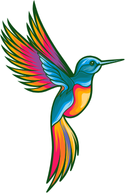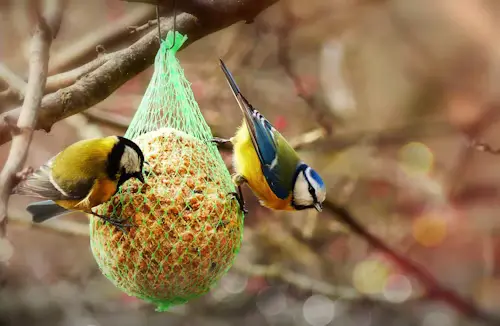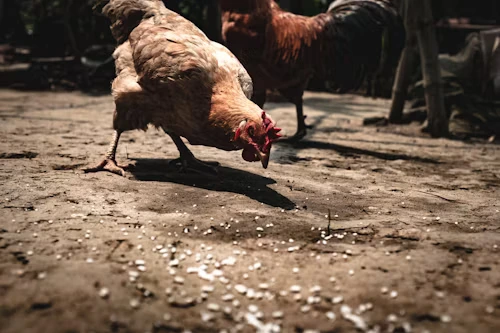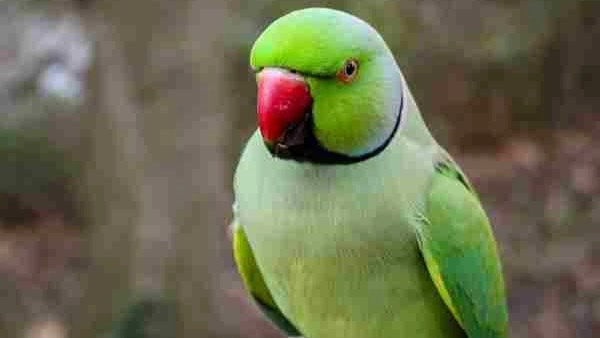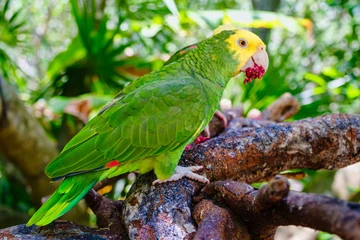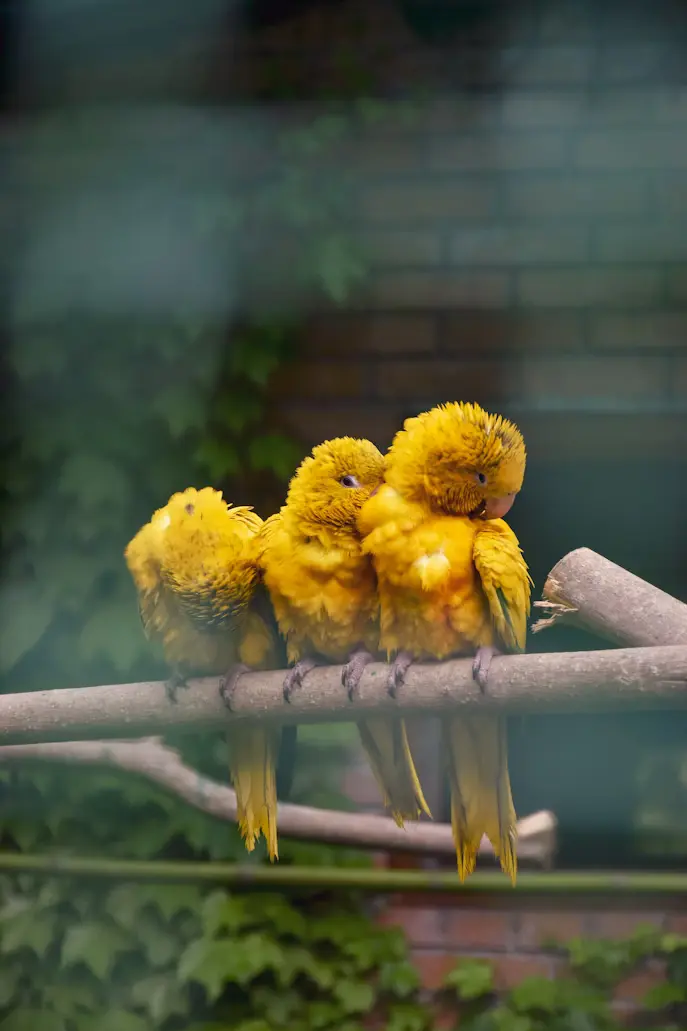National Pet Bird Day: How to Make Every Happy Memory the Best Count
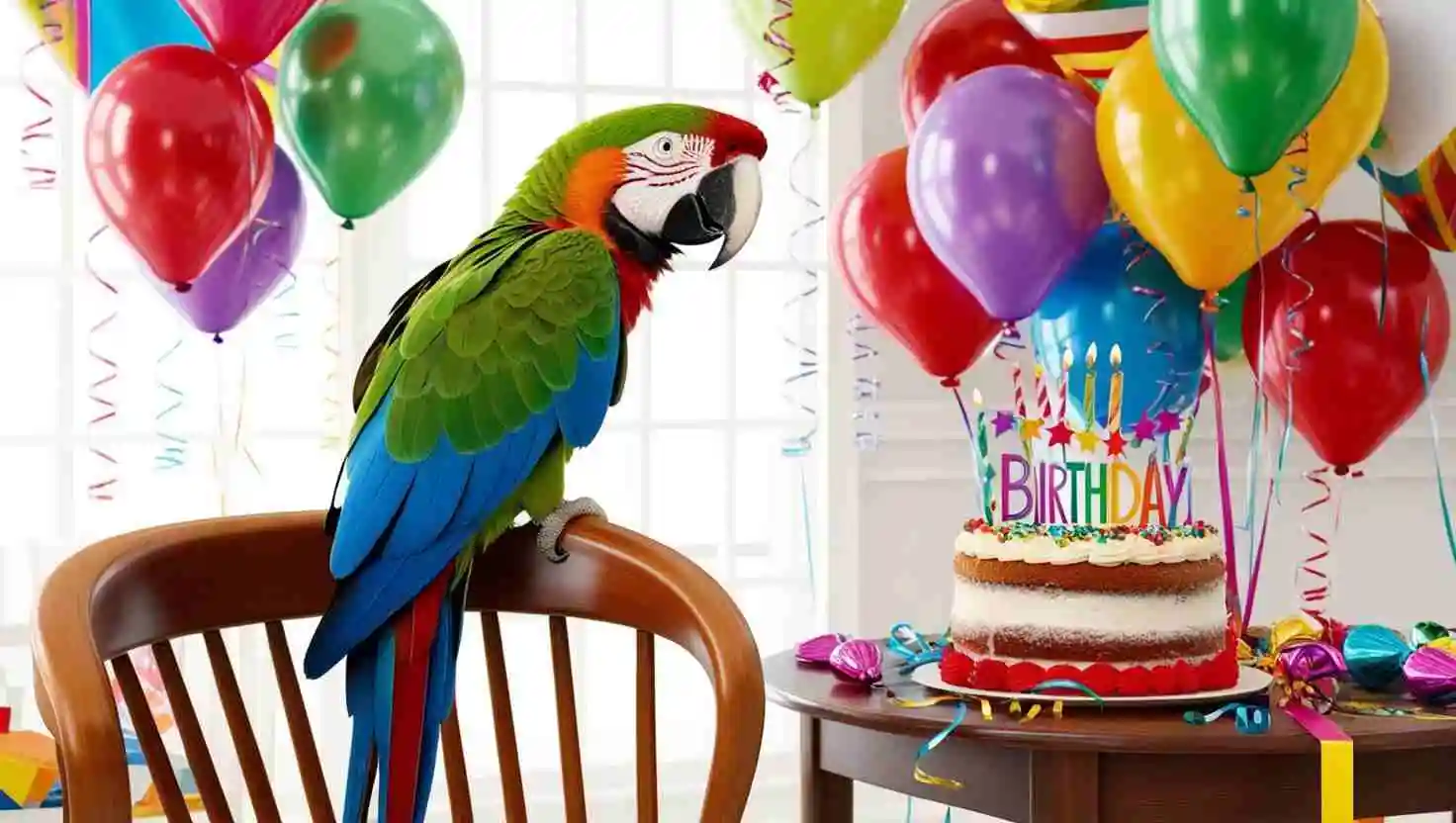
As pet bird enthusiasts, we understand the unique joy and companionship our feathered friends bring to our lives. National Pet Bird Day gives us the perfect opportunity to celebrate this special bond and raise awareness about proper bird care and ownership. Whether you’re a seasoned bird owner or considering adding a feathered companion to your family, this comprehensive guide will help you understand everything about this important day and responsible pet bird ownership.
Table of Contents
What is National Pet Bird Day? (The Definitive Guide)
Purpose and Significance
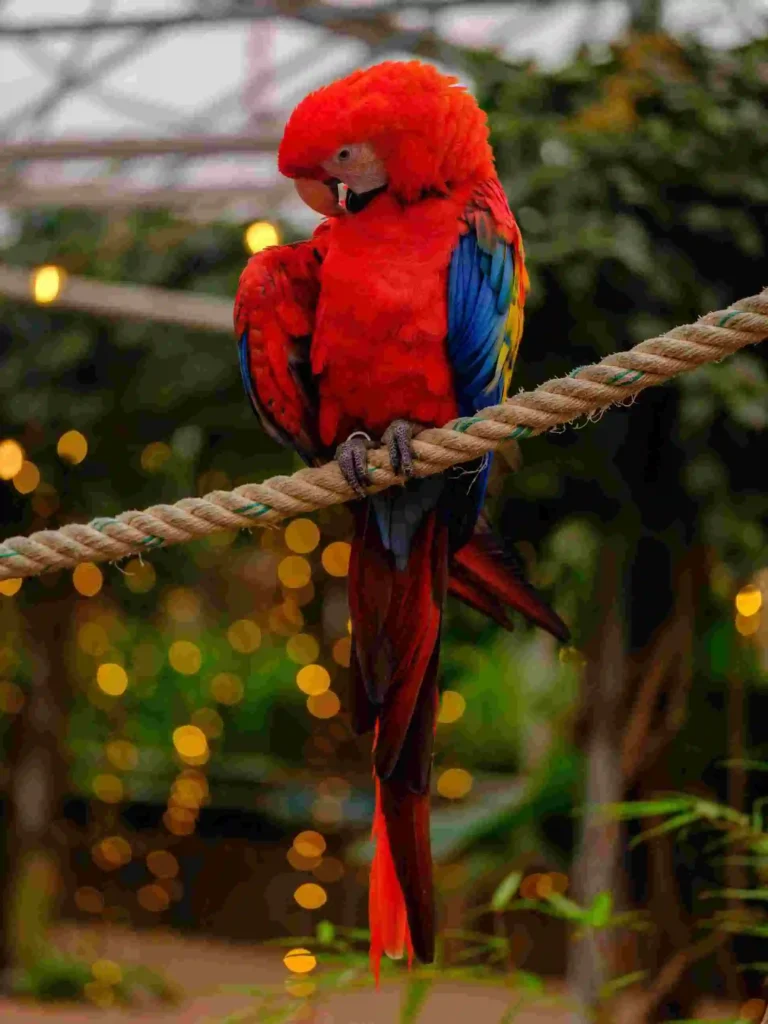
National Pet Bird Day was established to celebrate the special relationship between people and their pet birds while promoting responsible bird ownership practices. Unlike many other pet-focused holidays, this day specifically acknowledges the unique qualities that birds bring as companions—their intelligence, personality, and the distinctive bond they form with their human caregivers.
The day serves multiple purposes: celebrating existing bird owners and their pets, educating the public about proper bird care, promoting bird adoption from shelters and rescues, and raising awareness about conservation issues affecting wild bird populations. National Pet Bird Day recognizes that pet birds are not just decorative creatures but sentient beings deserving of proper care, enrichment, and respect.
History and Origins
National Pet Bird Day originated from a grassroots movement among avian enthusiasts, veterinarians, and bird welfare organizations who recognized the need for greater awareness around proper bird care. The celebration was formally established in the early 2010s by a coalition of avian welfare groups who wanted to create a dedicated day to spotlight birds as companions.
The first official celebration took place with small events at avian veterinary practices and bird specialty shops across the country. What began as localized celebrations has grown into a nationally recognized day with participation from major pet retailers, avian welfare organizations, and bird owners across social media platforms.
Official Date
National Pet Bird Day is celebrated annually on September 17th. This date remains consistent across regions and countries that observe the day. The mid-September timing was chosen to avoid conflict with other major pet holidays while providing an opportunity to focus exclusively on avian companions.
Why Celebrate?
Birds offer a unique form of companionship unlike any other pet. Their intelligence, personality, and ability to communicate through vocalizations creates a special bond with their human caregivers. Many bird species can live for decades, making them truly lifelong companions who grow alongside their owners.
National Pet Bird Day gives us a moment to reflect on and celebrate these relationships. It’s a day to appreciate the joy, laughter, and companionship our feathered friends bring to our lives. Whether it’s a cockatiel who greets you with a whistle each morning, a parakeet who chatters happily when you enter the room, or a parrot who has learned to mimic your phrases, these interactions bring immeasurable joy.
Beyond celebration, the day serves as a reminder of our responsibility to provide proper care, enrichment, and environments for our avian companions. Birds have specific needs that differ significantly from mammals, and this day helps raise awareness about those requirements among current and prospective bird owners.
Responsible Pet Bird Ownership: A Comprehensive Guide
Choosing the Right Bird
Selecting the right bird species is crucial for a successful relationship between bird and owner. Different species have vastly different needs, temperaments, and lifespans that should align with your lifestyle and expectations.
| Species | Lifespan | Personality/Temperament | Care Requirements | Noise Level | Best For |
|---|---|---|---|---|---|
| Budgerigar (Parakeet) | 5-10 years | Social, playful, can learn to talk | Moderate cage size, daily interaction, seed/pellet diet | Low to moderate | First-time owners, apartments |
| Cockatiel | 15-20 years | Affectionate, musical, good for handling | Medium cage, regular out-of-cage time, varied diet | Moderate (whistling) | Most households, families |
| Lovebird | 10-15 years | Energetic, can be territorial, bond strongly | Spacious cage, plenty of toys, social interaction | Moderate to high | Experienced owners who can provide time |
| Conure | 15-30 years | Playful, intelligent, active | Large cage, extensive enrichment, mental stimulation | High (squawking) | Active households, experienced owners |
| African Grey | 40-60+ years | Highly intelligent, excellent talkers | Very large cage, complex enrichment, social needs | Moderate to high | Very committed owners with bird experience |
| Cockatoo | 40-70+ years | Extremely affectionate, demanding | Enormous cage, constant interaction, specialized diet | Very high | Extremely experienced owners only |
When considering bird acquisition, ethical sourcing should be your priority. Here are the recommended channels for adding a feathered friend to your family:
- Bird Rescues and Sanctuaries: Many birds need rehoming due to their long lifespans outlasting owners’ situations. Adoption gives these birds a second chance.
- Reputable Breeders: If adopting isn’t an option, research breeders who prioritize bird health, genetic diversity, and proper socialization over mass production.
- Avoid Pet Stores: Many chain pet stores source birds from “bird mills” with poor conditions and inadequate care.
Remember that birds are a long-term commitment—some larger species can live 50+ years. Consider not just your current situation but how your life might change over decades.
Essential Care
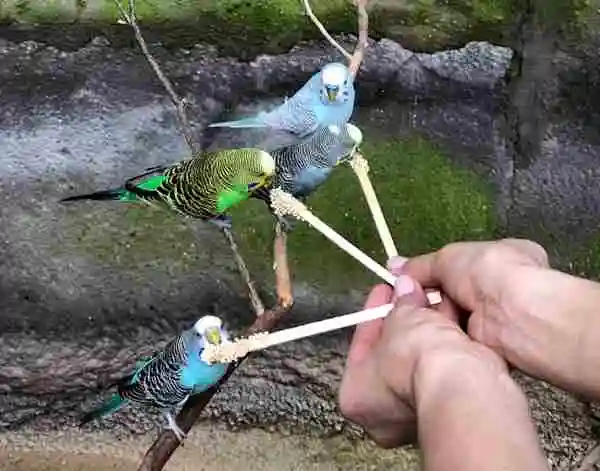
Housing
Proper housing is fundamental to a pet bird’s health and happiness. The cage should be the largest you can afford and fit in your space—birds need room to stretch their wings and move around comfortably.
Cage Essentials:
- Width should be at least twice your bird’s wingspan
- Bar spacing appropriate for your bird’s size (preventing escape)
- Multiple perches of varying diameters and materials (natural branches are ideal)
- Food and water dishes placed to avoid contamination
- Selection of appropriate toys rotated regularly
- Cage placement in a room where the family spends time, but away from drafts, direct sunlight, and kitchen fumes
Creating an Enriching Environment:
- Provide climbing opportunities with ladders, ropes, and branches
- Include foraging toys that make your bird work for treats
- Offer a variety of textures and materials for exploration
- Consider a playstand or safe area outside the cage for supervised time
- Provide areas of security where your bird can retreat when feeling stressed
Diet
Nutrition is perhaps the most critical aspect of bird care. A common misconception is that seed-only diets are sufficient, but most pet birds require a more varied diet for optimal health.
Core Nutritional Components:
- High-quality pellets formulated for your specific species (40-60% of diet)
- Fresh vegetables daily (30-40% of diet)
- Limited fresh fruits (10-15% of diet)
- Seeds as occasional treats rather than dietary staples
- Clean, fresh water changed daily
Foods to Avoid:
- Avocado (toxic to birds)
- Chocolate and caffeine
- Alcohol
- Salty or fatty foods
- Onions and garlic
- Apple seeds and fruit pits
- Processed human foods
Simple Bird-Friendly Recipe: Veggie Chop Mix together finely chopped dark leafy greens, bell peppers, carrots, broccoli, and cooked sweet potato. Freeze in ice cube trays and thaw one portion daily for easy, nutritious feeding.
Enrichment
Birds are highly intelligent animals that need mental stimulation to prevent boredom and behavioral issues like feather picking.
Daily Enrichment Ideas:
- Foraging opportunities (hiding treats in toys or paper cups)
- Training sessions using positive reinforcement
- Supervised out-of-cage time
- Rotation of different toys with various textures
- Social interaction with their human flock
- Exposure to appropriate environmental stimuli (nature sounds, music)
DIY Enrichment Projects:
- Paper towel rolls stuffed with treats and crinkled paper
- Untreated leather strips threaded with nuts and dried fruit
- Bird-safe wood pieces strung together for chewing
- Paper foraging boxes with hidden treats
Health
Preventative care is essential as birds often hide illness until advanced stages.
- Changes in droppings
- Decreased appetite
- Fluffed-up appearance
- Tail bobbing or labored breathing
- Decreased vocalization or activity
- Changes in behavior
Preventative Care:
- Annual check-ups with an avian veterinarian
- Proper diet and clean environment
- Appropriate wing, nail, and beak maintenance
- Protection from household hazards (toxic plants, Teflon fumes, etc.)
- Monitoring weight and droppings
Common Mistakes to Avoid
Even well-intentioned bird owners make errors that can impact their pet’s health and happiness:
- Seed-only diets: Leading to nutritional deficiencies and health problems
- Inadequate cage size: Restricting natural behaviors and movement
- Lack of socialization: Birds are flock animals that need regular interaction
- Improper toys: Unsafe materials can cause injury or poisoning
- Skipping veterinary care: Birds need specialized avian veterinarians
- Impulse purchases: Without understanding the species’ specific needs
- Housing incompatible species together: Creating stress or injury risk
- Using toxic cleaning products near birds: Birds have sensitive respiratory systems
Legal and Ethical Considerations
Bird ownership comes with legal and ethical responsibilities that vary by location:
- Certain exotic species require permits through the Convention on International Trade in Endangered Species (CITES)
- Some municipalities have restrictions on loud birds or limit the number of pets
- Certain states have regulations about specific parrot species
- Migratory birds are protected and cannot be kept as pets
Ethically, bird owners should commit to:
- Providing lifelong care appropriate to the species
- Having a plan for the bird’s care if the owner becomes unable to provide it
- Never releasing pet birds into the wild where they cannot survive
- Supporting conservation efforts for wild bird populations
- Avoiding contributing to the illegal wildlife trade
Celebrating National Pet Bird Day: Fun Activities and Ideas
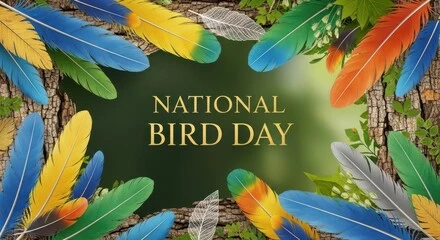
Celebrating with Your Bird
National Pet Bird Day is the perfect opportunity to give your feathered friend extra special attention and enrichment.
Special Day Activities:
- Create a new foraging puzzle filled with favorite treats
- Introduce a new toy selected specifically for your bird’s preferences
- Prepare special bird-friendly treats like a homemade chop or bird-safe baked goods
- Spend extended one-on-one time with training, talking, or simply being together
- Create a temporary play area with new textures and exploration opportunities
- Take photographs to commemorate your relationship
Community Involvement
Extend your celebration beyond your own home by supporting the wider bird community:
- Donate supplies to local bird rescues (foods, toys, cage accessories)
- Volunteer at a bird sanctuary or rescue organization
- Contribute financially to avian welfare organizations
- Participate in or organize a virtual fundraiser for bird-focused charities
- Share your knowledge by mentoring new bird owners
Raising Awareness
Use National Pet Bird Day as a platform to educate others:
- Share responsible bird ownership information on social media using hashtags like #NationalPetBirdDay, #PetBird, and #BirdCare
- Post photos of your bird’s proper housing, diet, and enrichment
- Create educational content about common bird care misconceptions
- Host a virtual “meet my bird” session to introduce friends to proper bird handling and care
- Organize a bird care workshop at a local community center or pet store
Events
While events vary by location, many organizations host special activities for National Pet Bird Day:
- Virtual bird shows where owners can showcase their birds’ talents or beauty
- Online educational seminars on bird health, nutrition, or behavior
- Discounted avian veterinary wellness checks
- Bird toy making workshops at specialty pet stores
- Adoption events at rescues and sanctuaries
Resources and Organizations
Reputable Bird Rescues and Sanctuaries
- Avian Welfare Coalition
- Phoenix Landing Foundation
- Parrot Education and Adoption Center
- Best Friends Animal Society (Bird Department)
- Local avian rescues (search “[your area] bird rescue”)
Avian Veterinarian Directories
- Association of Avian Veterinarians
- American Board of Veterinary Practitioners (Avian Practice)
- ExoticVets.org
Bird Clubs and Societies
- American Federation of Aviculture
- National Finch and Softbill Society
- African Love Bird Society
- American Budgerigar Society
- Local bird clubs (search “[your area] bird club”)
Educational Resources
- “The Parrot Problem Solver” by Barbara Heidenreich
- Lafeber Company’s Pet Bird Educational Resources
- Bird Tricks Training Resources
- World Parrot Trust Educational Materials
National Pet Bird Day reminds us of the special joy and responsibility that comes with bird ownership. By celebrating this day, we not only honor our feathered companions but also commit to their proper care and well-being. Whether you’re a new bird owner or have shared your life with birds for decades, use this day to strengthen your bond and improve your knowledge about these remarkable creatures.
Remember that bird ownership is both a privilege and a responsibility—one that can bring unparalleled rewards when approached with the proper knowledge, commitment, and love. Happy National Pet Bird Day to you and your feathered friends!
